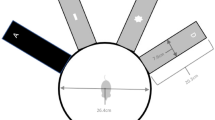Abstract
From April to December in 1997 at Northwest Plateau Institute of Biology, Chinese Academy of Science, the effect of predation risk on social behavior, feeding, reproduction and sexual hormones of the root voles (Microtus oeconomus) was studied when the root voles (Microtus oeconomus) were exposed to the odor of fitch (Mustila eversmanni). The results showed that the root voles delayed breeding period and the frequency of the copulation significantly lowered (P<0.01). Comparing with the control group, the accumulated time of amicable behavior in females, and general activity of both sexes increased significantly (P<0.01). The frequencies of general activity (P<0.01), investigating activity (females:P<0.05, males:P<0.01), and self-grooming (P<0.01) of both sexes were less significantly. At the same time, the amount of energy intake (P<0.05) and body weight (P<0.01) of the root voles decreased significantly. The litter weight and ovary index of females decreased (P<0.01). For males the sperm count in epididymides also decreased significantly (P<0.01). The progesterone in the blood serum of root voles females increased significantly under fitch odor (P<0.01).
Similar content being viewed by others
References
Batzli, G.O. 1986. Nutritional ecology of the California vole: effects of food quality on reproduction [J]. Ecology,67: 406–412.
Calder, C.J. and Gorman, M.L. 1991. The effects of red foxVulpes vulpes faecal odors on the feeding behavior of Orkney volesMicrotus arvalis [J]. J. Zool.,224: 599–606.
Cushing, B.S. 1985. Estrous mice and vulnerability to weasel predation [J]. Ecology,66: 1976–1978.
Esa, K. and Ylonen, H. 1995. Suppressed breeding in the field voleMicrotus agrestis: an adaptation to cyclically fluctuating predation risk [J]. Behav. Ecol.,6(3): 311–315.
Koponen, T. 1970. Age structure in sedentary and migratory populations of the Norwegian lemming (Lemmus, lemmus (L.)) at Kilpisjarvi in 1960 [J]. Ann. Zool. Fenn.,7:141–187.
Lima, S.L. and Dill, M.L. 1990. Behavioral decisions made under the risk of predation: a review and prospectus [J]. Can. J. Zool.,68:619–640.
Lima, S.L. and Valonc, T.J. 1986. Influence of predation risk on diet selection: a sample in the gray squirrel [J]. Anim. Behav.,34:536–544.
Oksanen, L. 1990. Explanation ecosystems in seasonal environments [J]. Oikos.57:14–24.
Ronkainen, H. and Ylonen, H. 1994. Behavior of cyclic bank voles under risk of mustelid predation: do females avoid copulation? [J]. Oecologia,97:377–381.
Stearns, S.C. 1976. Life-history tactics: review of the ideas [J]. Q. Rev. Biol.,51:3–47.
Wasser, S.K. and Barash, D.P. 1983. Reproduction suppression among female mammals: implications for biomedicine and sexual selection theory [J]. Q. Rev. Biol.,58: 513–538.
Ylonen, H. 1989. Weasels (Mustela nivalis) suppress reproduction in cyclic bank vole (Clethrionomys glareolus) [J]. Oikos,55:138–140.
Ylonen, H. and Ronkainen, H. 1994. Breeding suppression in the bank vole as antipredatory adaptation in a predictable environment [J]. Evol. Ecol.,8:658–666.
Ylonen, H., Jedrzejewska, B., Jedrzejewaski, W.,et al. 1992. Antipredatory behavior ofClethrionomys voles-David and Goliath' arms race [J]. Ann. Zoll. Finn.,29:207–216.
Author information
Authors and Affiliations
Additional information
Biography: WANG Zhen-long (1971-), male, lecture in Department of Biology, Qufu Normal University, Qufu 273165, P.R. China
Responsible editor: Zhu Hong
Rights and permissions
About this article
Cite this article
Zhen-long, W., Wen-xiang, M. Effects of fitch odor (Mustila eversmanni) on behavior and breeding of root voles (Microtus oeconomus). Journal of Forestry Research 12, 139–142 (2001). https://doi.org/10.1007/BF02867214
Received:
Issue Date:
DOI: https://doi.org/10.1007/BF02867214




